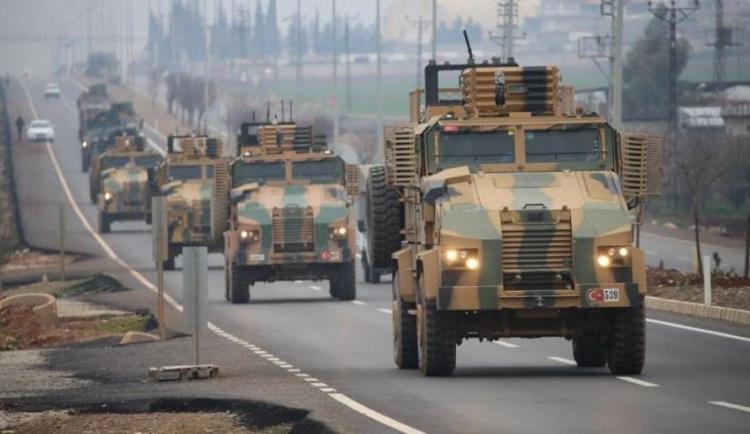Turkish reinforcements in Syria’s Idlib defensive, not monitored: military source
IDLIB, Syria (North Press) – On Saturday, a military source from Syria’s armed opposition said that the military reinforcements that the Turkish forces have recently brought to the de-escalation zone are “defensive reinforcements, and it is not their mission to monitor.”
During the past two days, the de-escalation zone in northwest Syria witnessed Turkish forces bringing in more military reinforcements, coinciding with similar Syrian government military build-ups within the region.
“The amount of reinforcements and military equipment brought to Zawiya Mountain indicates that Turkey’s goal is defensive and not for surveillance,” the source told North Press.
The source pointed out that Turkey “wants to send a serious message to the government forces and their ally Russia by responding to repeated bombings of government sites, and with its continuous response to the sources of fire in the southern and eastern countryside of Idlib, in addition to the western countryside of Aleppo.”
“They have spotted large military reinforcements for the Syrian government forces in recent days in the cities of Kafr Nabl and Ma’arrat al-Nu’man,” the source added.
These reinforcements coincided with an increase in the combat readiness of the opposition groups, according to the source.
Another military source in the Syrian opposition said that he “has not noticed any unusual activity of the Turkish forces in recent days.”
The source thinks that what is happening “comes within the framework of the periodic replacements of Turkish forces present in Zawiya Mountain.”
“Turkish forces occasionally target the sources of fire from the government forces when these sources target positions close to the sites of the Turkish army,” the source told North Press.
This comes within the framework of “warning not to approach the sites of the Turkish forces, because the Turkish response is through several missiles,” according to the source.
Turkish reinforcements to the de-escalation zone coincided with the entry of the Russian-Turkish agreement into force on March 5, 2020, to halt military operations in the region, its second year without achieving any progress.

